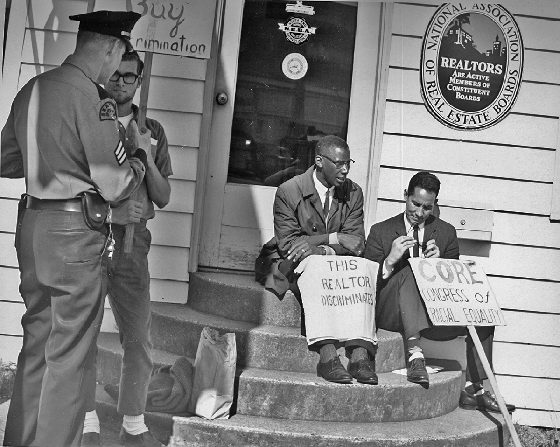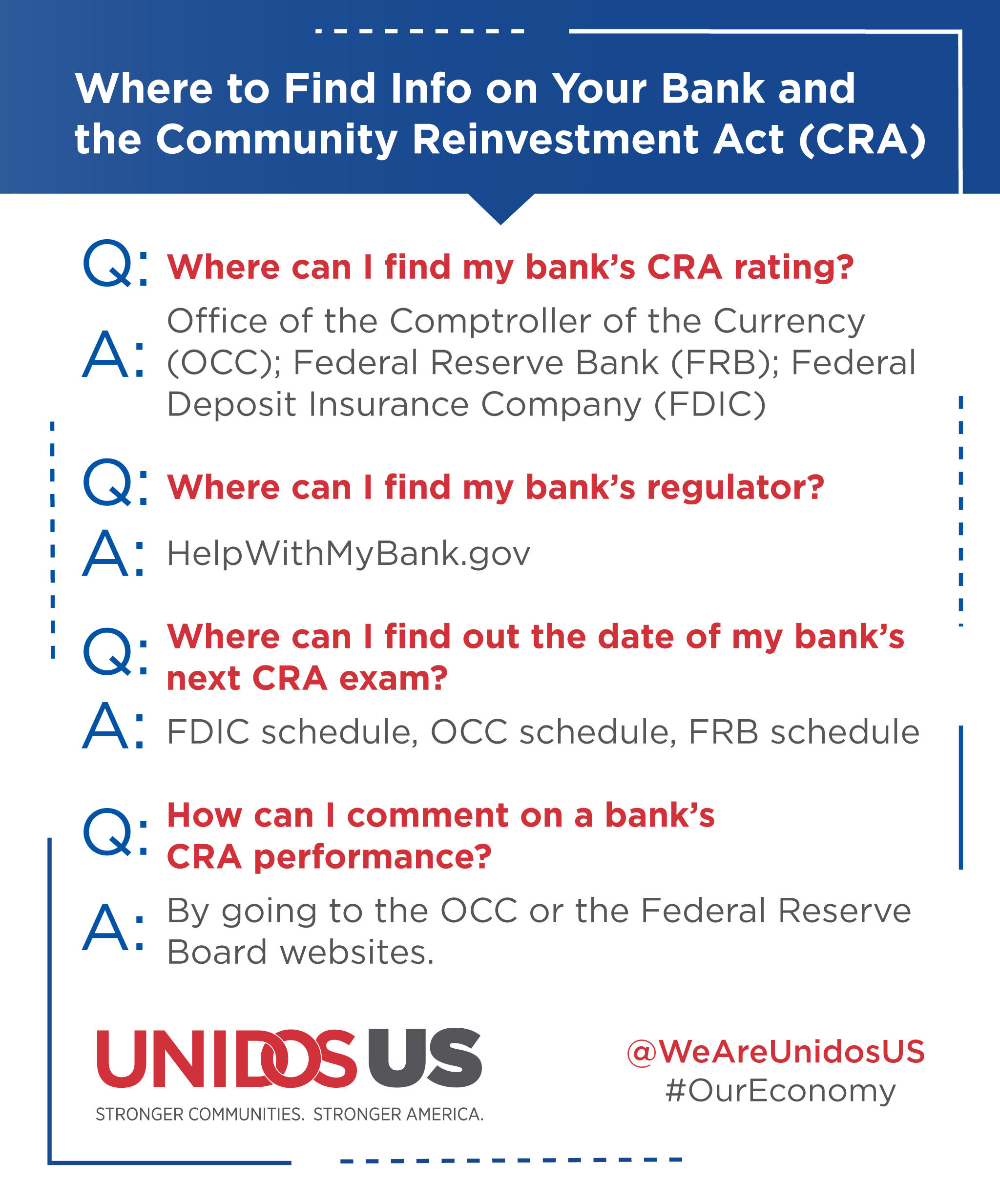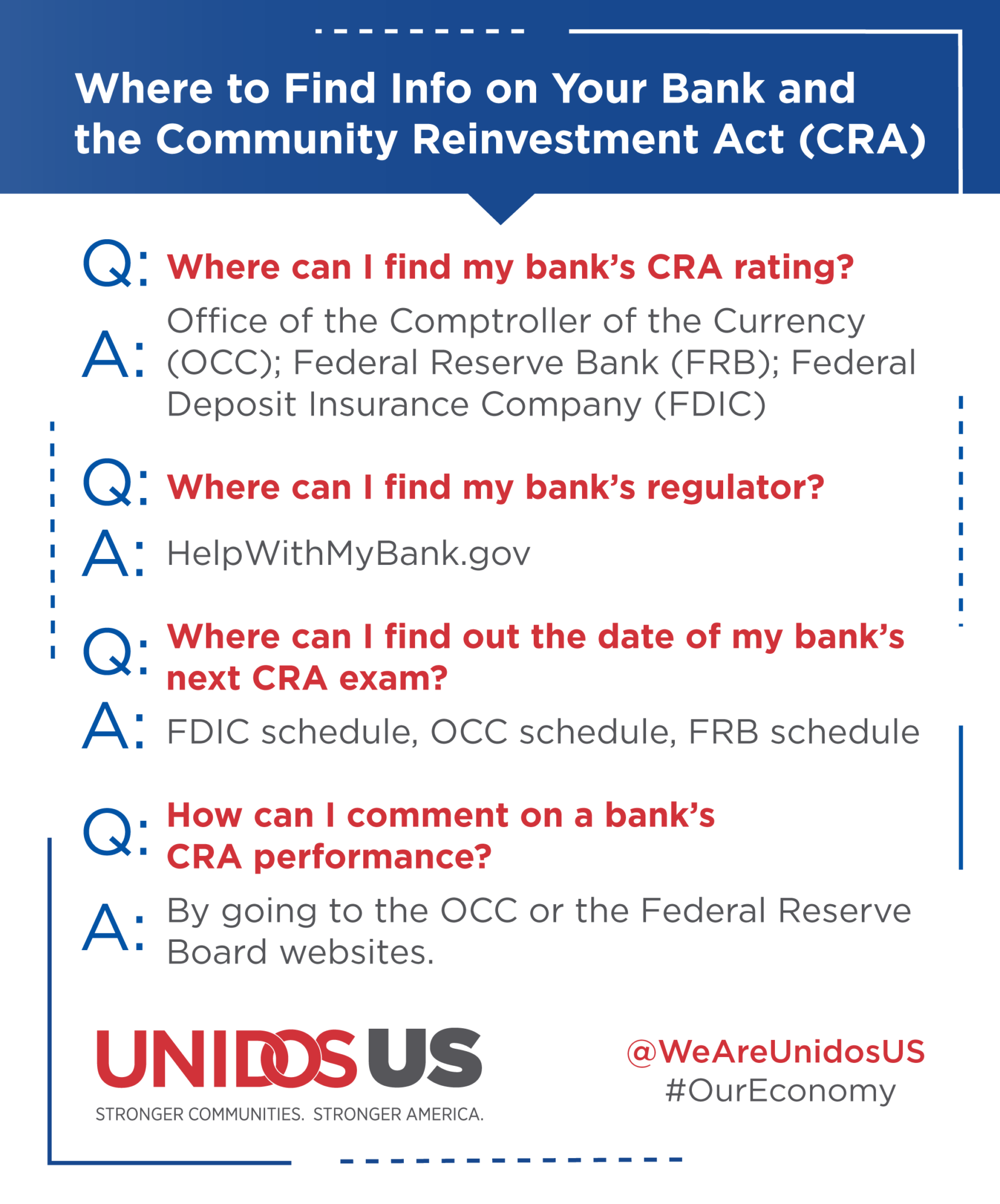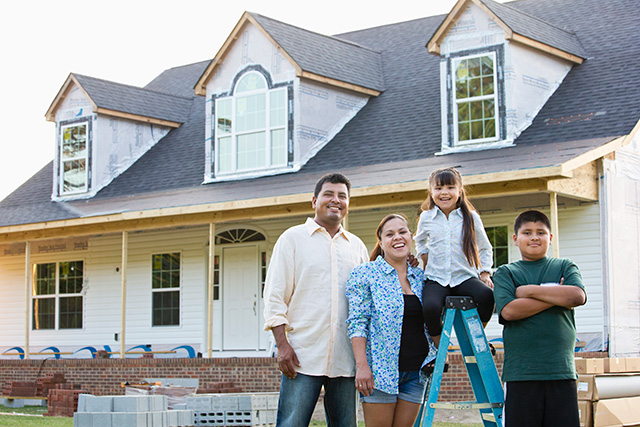Four Ways the Community Reinvestment Act Can Be a Stronger Advocacy Tool for Latinos
By Agatha So, Policy Analyst, UnidosUS

This month marks the 40th anniversary of the Community Reinvestment Act (CRA). This landmark law has ensured fair and affordable access to bank services, credit, and investments for Latinos and low-income communities across the country. The CRA was signed into law to correct widespread discriminatory lending practices, called redlining, that prevented communities of color and low-income communities from qualifying for a home loan. Yet, even today Latino families are denied a mortgage at a higher rate than White families. And we continue to face discrimination when looking for an affordable place to live. Changes are needed to strengthen the law to make it a more effective advocacy tool for Latino communities.
The CRA requires banks to provide services and make credit available to low-and moderate-income communities in areas where they do business. To ensure banks are following the law, every three years their performance is evaluated based on activities including how many home loans they have approved for low-income families and the type of investments they make in low-and moderate-income neighborhoods. Additionally, community members can give their feedback on the bank’s performance directly to the bank or the bank’s regulator.
Keep up with the latest from UnidosUS
Sign up for the weekly UnidosUS Action Network newsletter delivered every Thursday.
Over the years, the CRA has helped to revitalize neighborhoods and encourage banks to innovate so that low-income and nontraditional borrowers, including many Latinos, have access to services and credit, and benefit directly from large bank investments that might otherwise not reach their neighborhoods. The law has also helped curb the effects of discrimination and unequal treatment of Latinos, immigrants and other communities of color when they interact with the financial marketplace.
Even after forty years, Latinos and communities of color still face discrimination in the housing market and the impact of historical segregation where they live continues to be felt. In Boston, while Latino and Black families receive fewer mortgages than White families, the majority of mortgages that are made to these families are concentrated in specific neighborhoods. In Los Angeles, a report revealed that Hispanic families experience high levels of segregation in the neighborhoods where they live.

UnidosUS believes the CRA can become a stronger, more effective tool for advocacy in several ways:
- CRA-covered banks must be assessed in all communities where they do business. Banks should not be rewarded for providing high-quality banking services and loan products in one neighborhood and then limiting their availability in another. Banks must be examined based on their services and loans in all communities where they provide financial services, including neighborhoods where they do not have a bank branch or have not made many loans.
- CRA exams and ratings must include the bank’s fair lending record, the feedback of local communities, and be open and easily accessible to the public. CRA examiners should include the experiences of Latinos and other underbanked communities in the fair lending test of the CRA exam. In addition, the scheduled CRA exam dates should be available to local communities well in advance.
- Raise the standard required for banks to receive an “Outstanding” rating. Most CRA-covered banks receive the second highest rating: “Satisfactory”. CRA-covered banks that receive the highest rating of “Outstanding” should be leaders in developing innovative services and offering products that meet the needs of low-and moderate-income communities. Bank regulators should clarify how the CRA exam works, and explain how banks can achieve the highest rating instead of merely meeting the minimum requirements.
- Banks should get credit for investing in communities still recovering from the economic crisis. While the Latino community has made considerable economic progress, Latino families and the neighborhoods where they live, have not completely recovered the significant wealth that was lost to foreclosures. Banks should be rewarded for funding community-based organizations leading the financial recovery. Such efforts include helping to prevent foreclosures in the hardest-hit communities and committing to community development activities that help stabilize and rebuild wealth, in Latino and low-income communities.
UnidosUS believes the CRA is an appropriate and necessary tool for Latino communities still on the road to economic recovery. We will work with our affiliate network to leverage the power of the CRA. We’ll also advocate for a stronger, more effective CRA to ensure communities across the country have access to fair and affordable banking services, mortgage products, and other financial services.



